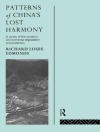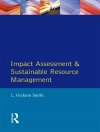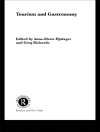This book characterizes a type of city, i.e. the metropolis, by using characteristics which have very little to do with its size. It distinguishes between metropolises and megacities and defines these different characteristics by bringing together elements related to facilities, accessibility and economic power on one hand and other elements which relate more to the capacity for innovation and, more generally, to the knowledge society and economy. All of which demonstrate the process of metropolization, as well as elements of daily life and, more generally, elements which relate to the urban experience. To live in a metropolis is not only to benefit from more urban amenities, but also to live in a different way, in particular, in a world which is much more diverse in every respect.
Based on a series of metropolization criteria constructed and discussed, this book goes beyond ordinary statistical approaches to integrate the interterritorial scale of metropolitan systems as well as their qualitative dimension. Following in Simmel’s footsteps, it shows that a city is also an atmosphere, a mentality, a spirit, all of which are poorly captured by statistical data. As such, the book focuses on five major themes: networks, economic development, social issues, urban form and the ecological and digital transition.
The books makes an interesting read for urban planners, sociologists, planners and architects, and all specialists working in this field.
Inhaltsverzeichnis
Part 1 . Does the Knowledge Economy Create the Metropolis?.- 1. Metropolization through Knowledge and Creativity? French Metropolises According to Urban Planners (Christophe Demazière, Divya Leducq).- 2. When Technopolises have Lost their Resilience: The Grenoble Paradox (Magali Talandier).- 3. Between Knowledge and Creative Economy: the Milan Urban Region as a Spatial Interface (Simonetta Armondi, Stefano Di Vita, Corinna Morandi).- Part 2: Networks and Mobility – is a Metropolis all about Networks?.- 4. The Future of the Metropolis Network (Nathalie Roseau).- 5. High Speed Rail and Intermediary Metropolitan Areas: how an International Perspective can Shed Light on the Particularities of the French Model (Philippe Menerault & Cyprien Richer).- 6. Networks and the Metropolis.- Part 3. Is the Metropolis a Type of Society?.- 7. Society at the Core of Metropolises (Alain Bourdin).- 8. When Tourism Transforms the Metropolitan Space and Society: the Case of the Île-de-France Region (Maria Gravari-Barbas).- 9. Post-Migration and the Transformation of Urban Life: Experiences from Germany (Frank Eckardt).- Part 4. The Form of the Metropolis.- 10. Are Metropolises Taking Form? (Antoine Bres).- Part 5. Issues for Metropolises.- 11. Climate Issues in France: the Metropolis against the State? (Jean-Baptiste Marie).- 12. Which Future for Metropolitan City Regions in Europe? Seven Narratives (Klaus R. Kunzmann).
Über den Autor
Alain Bourdin, sociologist and urban planner, is a university professor emeritus at the Ecole d’Urbanisme de Paris, France and currently visiting professor at the National University of Singapore. He was President and Scientific Director of the Popsu 2 program (2014-2018). He is editor of the Revue internationale d’urbanisme. His research focuses on the evolution of urban lifestyles, major urban projects, the organization of local urban action, heritage and university urban planning. He has also developed a consultancy practice (working with major design teams and developers), mainly in France. His books include. Grand Paris Olympique : premiers tours de pistes (With Hélène Dang Vu and Joel Idt , Archibooks 2023). Du quartier à la ville, ce que préfèrent les habitants, (With Pauline Silvestre, l’Aube 2021), Faire Centre ( l’Aube 2019) L’urbanisme des modèles (with Joël Idt, L’Aube, 2016), La métropole fragile (Editions du Moniteur, 2015), Métapolis revisitée (L’Aube, 2014), L’urbanisme d’après-crise (L’Aube, 2010), Du bon usage de la ville (Descartes, 2009), Les règles du jeu urbain ( Descartes, 2006), La métropole des individus (L’Aube, 2005), Un urbanisme des modes de vie (with Ariella Masboungi, Editions du Moniteur, 2004), La question locale (PUF, 2000).












